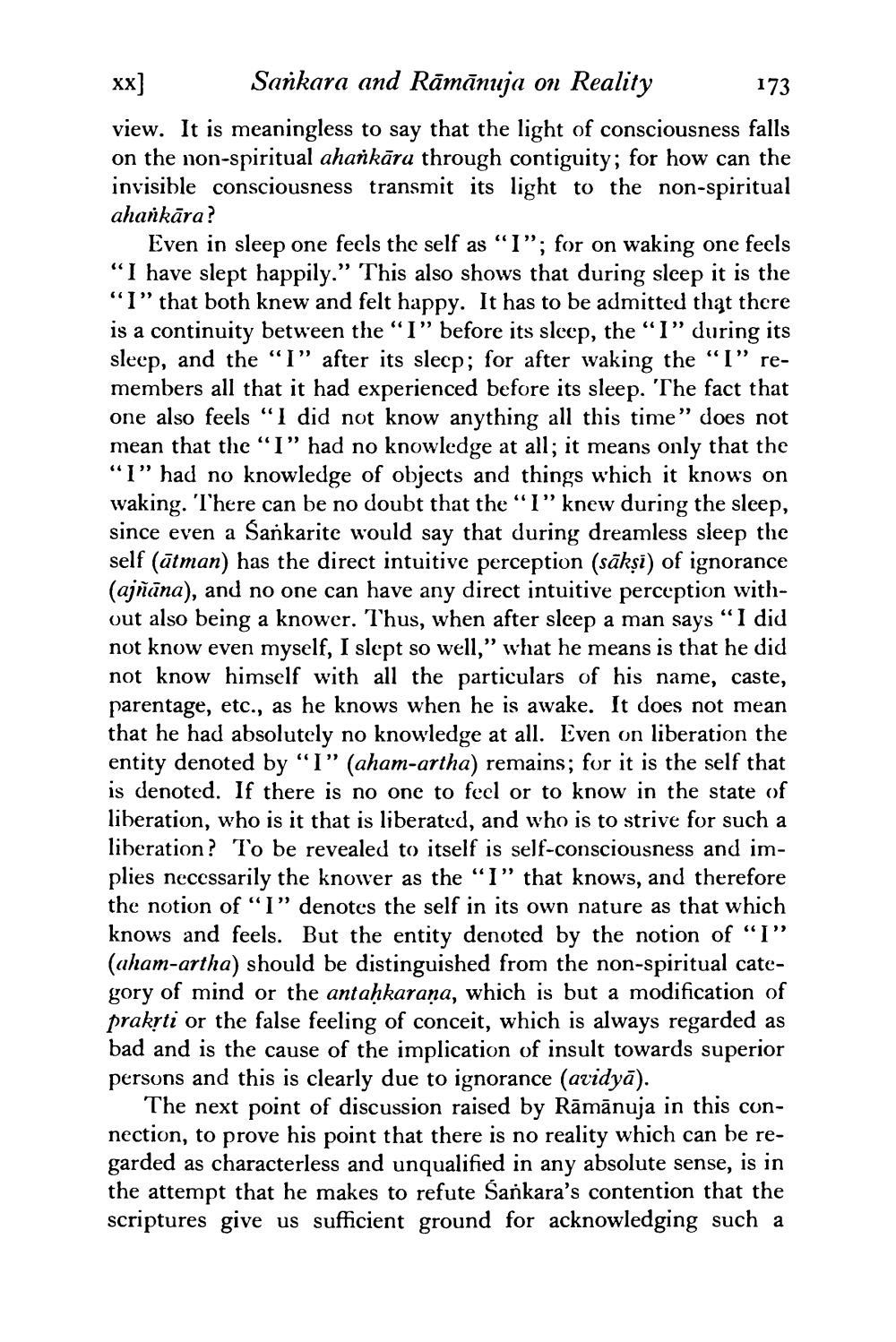________________
XX)
Sankara and Rāmānuja on Reality 173 view. It is meaningless to say that the light of consciousness falls on the non-spiritual ahankāra through contiguity; for how can the invisible consciousness transmit its light to the non-spiritual ahankāra?
Even in sleep one feels the self as “T”; for on waking one feels "I have slept happily.” This also shows that during sleep it is the “I” that both knew and felt happy. It has to be admitted thąt there is a continuity between the “I” before its sleep, the “I” during its sleep, and the “I” after its slecp; for after waking the “I” remembers all that it had experienced before its sleep. 'The fact that one also feels "I did not know anything all this time" does not mean that the “T” had no knowledge at all; it means only that the “I” had no knowledge of objects and things which it knows on waking. There can be no doubt that the “T” knew during the sleep, since even a Sankarite would say that during dreamless sleep the self (ātman) has the direct intuitive perception (sākşi) of ignorance (ajñāna), and no one can have any direct intuitive perception without also being a knower. Thus, when after sleep a man says “I did not know even myself, I slept so well," what he means is that he did not know himself with all the particulars of his name, caste, parentage, etc., as he knows when he is awake. It does not mean that he had absolutely no knowledge at all. Even on liberation the entity denoted by “I” (aham-artha) remains; for it is the self that is denoted. If there is no one to feel or to know in the state of liberation, who is it that is liberated, and who is to strive for such a liberation? To be revealed to itself is self-consciousness and implies necessarily the knower as the “I” that knows, and therefore the notion of “I” denotes the self in its own nature as that which knows and feels. But the entity denoted by the notion of “I” (aham-artha) should be distinguished from the non-spiritual category of mind or the antaḥkaraņa, which is but a modification of prakrti or the false feeling of conceit, which is always regarded as bad and is the cause of the implication of insult towards superior persons and this is clearly due to ignorance (avidyā).
The next point of discussion raised by Rāmānuja in this connection, to prove his point that there is no reality which can be regarded as characterless and unqualified in any absolute sense, is in the attempt that he makes to refute Sankara's contention that the scriptures give us sufficient ground for acknowledging such a




